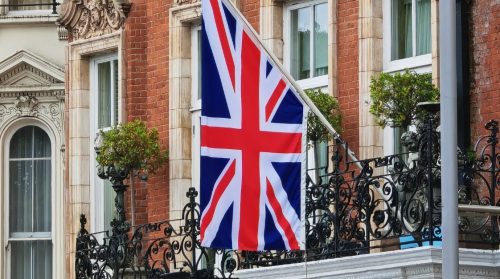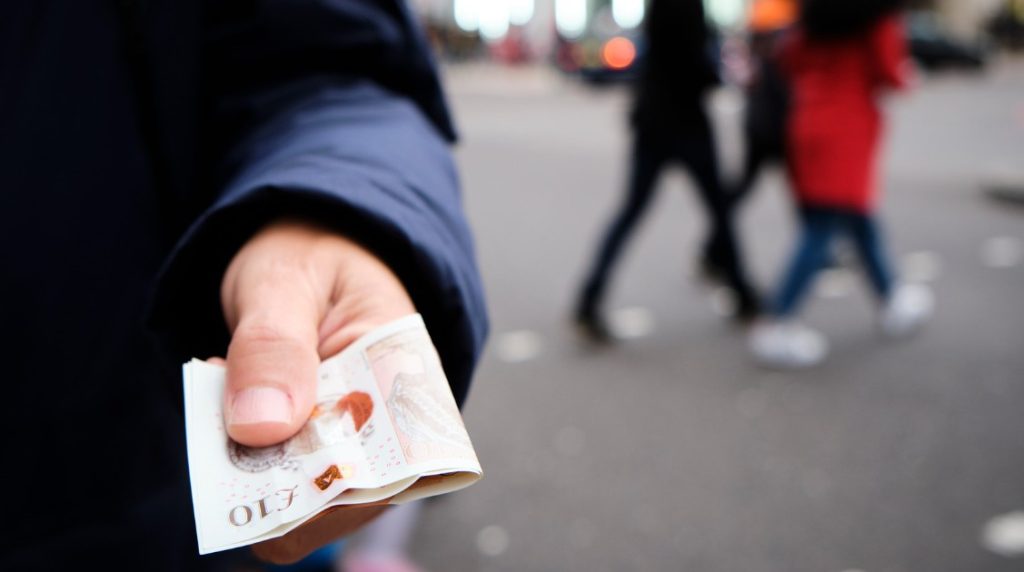Table of Contents
The topic of prostitution and its legality is one of the most complex and debated issues in England.
While prostitution itself is not a criminal offence, many associated activities are regulated or criminalised, creating a legal grey area that often leaves both sex workers and the public confused.
This blog delves into the legal framework governing prostitution in England, exploring the rights of sex workers, the restrictions in place, and the broader societal implications.
Whether you are curious about the laws, concerned about safety, or interested in advocacy efforts, this guide offers an informative and comprehensive overview of prostitution in England.
What Is Prostitution?

Prostitution refers to the exchange of sexual services for payment. It is one of the oldest professions in human history, existing in various forms across cultures and societies.
However, the perception and regulation of prostitution vary widely depending on societal norms, cultural beliefs, and legal systems.
In England, the focus on prostitution often shifts between its moral implications and its socio-economic impact. Some view it as a personal choice or necessity, while others associate it with exploitation and trafficking.
The key difference lies in whether the act is consensual and free from coercion. It is important to differentiate between sex work and human trafficking, where individuals are forced or deceived into the trade.
The discourse around prostitution is not just about legality but also about safety, rights, and stigma faced by those involved in the industry. Understanding these aspects is essential to forming a balanced view of the topic.
What Is the Legal Status of Prostitution in England?
In England, prostitution itself is not illegal. An individual can legally exchange sexual services for money. However, several laws regulate related activities to address public safety, exploitation, and trafficking.
Key points about the legal status include:
- Selling sexual services is not a criminal offence.
- Soliciting in public spaces is illegal, impacting those who engage in street-based sex work.
- Brothel-keeping is prohibited, meaning that two or more sex workers cannot operate from the same premises without facing legal consequences.
- Third-party involvement, such as pimping or controlling prostitution, is criminalised.
These laws aim to curb exploitation and reduce the visibility of prostitution in public spaces. However, they often make it challenging for sex workers to operate safely.
For example, the prohibition of brothels can force individuals into isolated and unsafe working conditions.
Efforts are underway by advocacy groups to address these concerns and push for reforms that prioritise safety and human rights over criminalisation.
Is Prostitution Legal in England?

Prostitution occupies a unique legal space in England, where the act itself is legal, but the surrounding activities are tightly controlled.
This duality creates significant confusion about what is permissible and what is not.
Legal aspects of prostitution include:
- Engaging in private consensual sex work.
- Advertising services discreetly through online platforms.
Illegal aspects include:
- Working in pairs or groups, which is classified as brothel-keeping.
- Soliciting clients in public spaces, a common practice for street-based sex workers.
- Employing individuals to manage or promote prostitution, as this is viewed as exploitation.
This approach aims to strike a balance between acknowledging the realities of prostitution and mitigating its perceived societal risks.
However, critics argue that these laws disproportionately impact vulnerable sex workers, exposing them to greater risks.
Advocacy groups continue to challenge these restrictions, emphasising the need for a more inclusive and supportive legal framework.
What Are the Laws Around Soliciting in Public Spaces?
Soliciting refers to the act of offering or seeking sexual services in a public place. In England, this is a criminal offence under the Street Offenses Act 1959.
The law aims to reduce the visibility of prostitution and associated nuisances in public areas.
Key aspects of soliciting laws include:
- Street-based sex workers can face fines or legal action for offering services in public.
- Clients engaging in soliciting may also face penalties.
- Local authorities often implement dispersal orders to move sex workers away from certain areas.
While these measures are intended to maintain public order, they often have unintended consequences. Sex workers are forced to operate in less safe locations, increasing their risk of violence.
Advocacy groups have called for more supportive approaches, such as decriminalising solicitation and providing safe zones for sex workers.
When Did Prostitution Become Legal in the UK?

Prostitution has never been explicitly legalised in the UK. Instead, certain aspects of it have been decriminalised over time, with various laws regulating its practice.
The legal framework surrounding prostitution in the UK began to take shape in the 19th and 20th centuries, influenced by changing societal attitudes and public health concerns.
Key legislative milestones include:
- The Contagious Diseases Acts (19th century): These laws were introduced to regulate prostitution around military bases, aiming to control the spread of sexually transmitted infections.
- The Street Offenses Act 1959: This act criminalised soliciting in public spaces, targeting street prostitution, and was part of efforts to reduce public nuisance.
- The Sexual Offenses Act 2003: This introduced measures aimed at combating exploitation and trafficking, marking a shift towards addressing the abuse and coercion often associated with prostitution.
These laws reflect the balance between morality, public health, and the protection of individuals involved in sex work.
Over time, the UK has moved from stricter regulation to a more nuanced approach focusing on protecting sex workers from exploitation and harm.
What Are the Rights of Sex Workers in the UK?
Sex work in England and Wales occupies a legal grey area, with prostitution itself being legal, but many associated activities strictly regulated.
Understanding the rights and restrictions of sex workers is crucial for ensuring their safety and well-being.
Key Rights and Legal Position
- Freedom to Work Privately: Selling sexual services privately is legal.
- Escort Services: Working as an escort is allowed if agencies do not exert control.
- Protection from Violence: Sex workers are protected under general criminal laws.
- Access to Support Services: Organizations like Basis Sex Work Project and the English Collective of Prostitutes provide guidance on legal rights, safety, and welfare.
Legal Restrictions
- Soliciting or loitering in public is illegal and may lead to fines or legal orders.
- Authorities can issue civil injunctions or anti-social behaviour orders to restrict entry to specific areas.
- Brothel-keeping, defined as two or more sex workers operating from the same premises, is a criminal offence.
Efforts continue to advocate for reforms that prioritise safety and human rights.
What Penalties Exist for Engaging in Illegal Prostitution Activities?

Penalties for illegal prostitution-related activities in England are defined by several laws aimed at addressing exploitation, public safety, and organised crime.
These penalties range from fines to severe imprisonment depending on the nature of the offense and the level of involvement in illegal activities.
Key Offenses and Associated Penalties
- Fines for Soliciting: Under the Street Offenses Act 1959, individuals engaging in street solicitation may face financial penalties.
- Imprisonment for Brothel-Keeping: Under Section 33A of the Sexual Offenses Act 1956, managing or assisting in the operation of a brothel can result in imprisonment for up to seven years.
- Modern Slavery Charges: Trafficking for sexual exploitation under the Modern Slavery Act 2015 carries a maximum penalty of life imprisonment.
Evidential and Public Interest Considerations
Prosecution guidelines emphasise distinguishing between offenders and victims, focusing on supporting individuals forced into prostitution while prosecuting those who exploit or control them.
Prosecutors are encouraged to collaborate with police to guide sex workers toward safer environments or exit from prostitution, prioritising rehabilitation overcriminalisation.
These measures highlight England’s effort to balance enforcement against exploitation with safeguarding the rights and dignity of sex workers.
How to Spot a Working Girl UK?
Public perceptions of sex workers in the UK are often clouded by stereotypes, which can be misleading and harmful.
It is crucial to approach the subject with respect, understanding that individuals engaged in sex work come from diverse backgrounds and have varying motivations for their choices.
Key Considerations:
- Diversity of Roles: Sex workers can include individuals working independently, those in escort services, and others operating in public spaces.
- Misconceptions: Not every person fitting certain outward behaviours or appearances is a sex worker. Avoid making assumptions based on stereotypes.
- Personal Circumstances: Many sex workers engage in the trade due to financial pressures, while others choose it for autonomy or other personal reasons.
Advocacy organisations emphasise the importance of focusing on safety and rights rather than judging individuals.
Efforts like the “Ugly Mugs” scheme aim to improve safety for sex workers by providing resources to report violence or exploitation.
Respect, empathy, and informed understanding should guide any discourse around sex workers.
How Does Prostitution Law Differ Across the UK?

Prostitution laws across the UK differ significantly, reflecting varying legal frameworks and societal attitudes in England, Wales, Scotland, and Northern Ireland. While England and Wales share similar regulations, Scotland and Northern Ireland adopt stricter measures.
In England and Wales
- Selling sexual services is legal, but activities such as soliciting, brothel-keeping, and pimping are prohibited.
- The focus is on controlling public nuisance and preventing exploitation.
In Scotland
- The legal framework is more restrictive, with laws targeting the reduction of street prostitution.
- Discussions around implementing the Nordic Model, which criminalises clients, have gained traction.
In Northern Ireland
- A significant shift occurred in 2015 with the Human Trafficking and Exploitation Act.
- The act criminalised the purchase of sexual services, making it illegal to pay for prostitution.
These differences highlight the UK’s varied approach, influenced by cultural, political, and advocacy pressures, with ongoing debates about balancing safety, human rights, and criminal justice.
Conclusion
Prostitution laws in England are a complex blend of decriminalisation and regulation. While selling sexual services is legal, many related activities, such as soliciting in public and operating brothels, are restricted.
This creates significant challenges for sex workers who face legal and social barriers, often leaving them vulnerable to exploitation.
The current legal framework aims to balance public health, morality, and the protection of individuals, but it has also been criticised for not fully supporting sex workers’ rights and safety.
Advocacy for reform continues, with calls for a more inclusive legal approach that prioritises human rights, safety, and better working conditions for those in the sex industry.
FAQs
Why is prostitution a crime in the UK?
Prostitution itself is not a crime in the UK, but many related activities, such as soliciting, brothel-keeping, and pimping, are illegal. These laws aim to address exploitation and public order concerns while protecting vulnerable individuals.
Is soliciting illegal in the UK?
Yes, soliciting sexual services in public spaces is illegal in the UK. Individuals found engaging in this activity can face fines and other legal consequences.
Is prostitution legal in Scotland?
In Scotland, prostitution laws are stricter than in England, with an emphasis on criminalising both buyers and sellers in public spaces. The legal framework in Scotland focuses on tackling exploitation and human trafficking.
Is online solicitation treated differently under UK law?
Online solicitation is subject to strict regulations, particularly when involving platforms that advertise sexual services. Facilitating prostitution through online platforms can lead to charges under laws related to aiding and abetting.
Is prostitution legal in the UK on Reddit?
Discussions on Reddit often reveal confusion, but prostitution itself is legal in the UK with restrictions on related activities. Misconceptions arise due to varying laws across regions and a lack of understanding of legal specifics.
Are there zones where prostitution is tolerated in the UK?
Some cities, like Leeds, have experimented with managed zones where prostitution is informally tolerated under strict guidelines. These zones aim to improve safety for sex workers while addressing public concerns.
Is prostitution legal in Northern Ireland?
Prostitution laws in Northern Ireland are stricter than in the rest of the UK, with buying sexual services being a criminal offence. The focus is on criminalising demand while offering support to those exiting the industry.
Is it illegal to see an escort?
Seeing an escort is not illegal in England, provided there is no involvement in activities like trafficking or coercion. However, paying for sexual services with a victim of exploitation is a serious offence.




